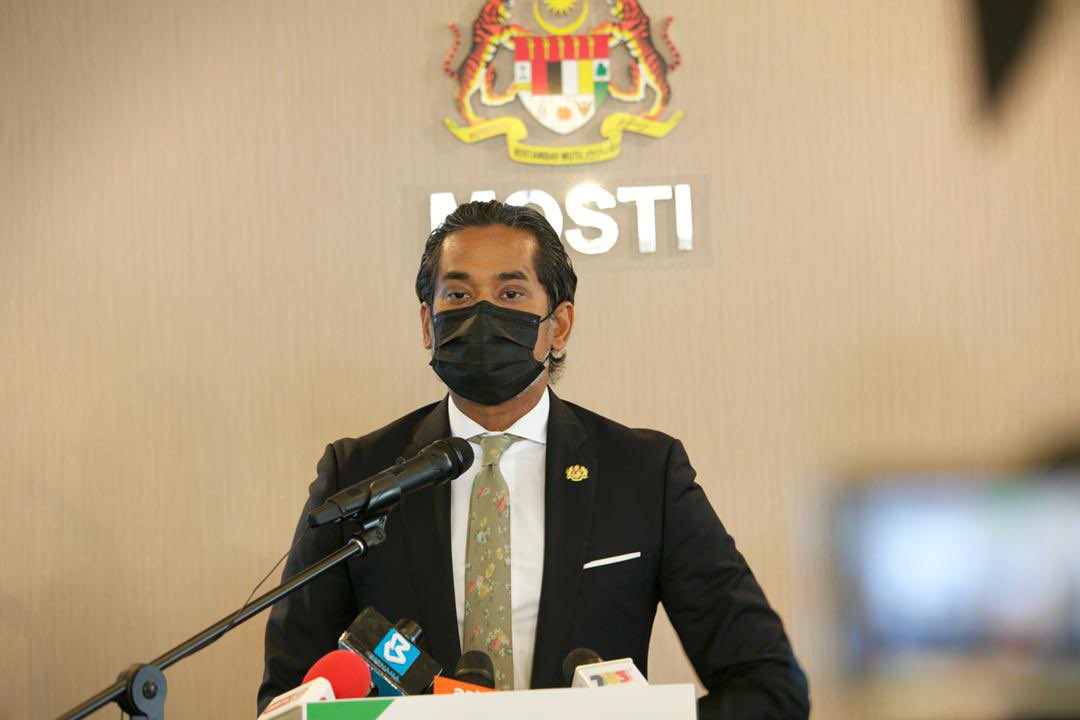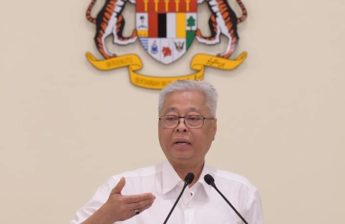KUALA LUMPUR, Feb 20 — Khairy Jamaluddin expects delivery of 1,000,350 doses of Pfizer-BioNTech’s Covid-19 vaccine to Malaysia by March 29, with shipments arriving about every week from tomorrow.
The vaccine minister said each batch would be roughly about the same size; the first batch of 312,390 doses is scheduled to arrive in Malaysia tomorrow. The Malaysian government has ordered 32 million doses of the Pfizer-BioNTech vaccine.
“I can give you broad strokes — the first one is on 21 February, second batch is on 1 March, 8 March, 15 March, 22 March. By 29 March, we will have 1,000,350 doses of Pfizer,” Khairy said in a panel discussion on Covid-19 vaccines on audio platform Clubhouse last night, in response to a question by CodeBlue.
Khairy, who leads the Covid-19 Immunisation Task Force (CITF), said the 300,000 frontline health workers who would be vaccinated in the first phase of the national vaccination programme comprised management and professional staff in the health sector, including medical officers, pharmacists, and science officers. The mass inoculation campaign is expected to launch on February 26.
Paramedics and auxiliary staff in the health sector will also receive shots in the first phase, such as nurses, medical assistants, X-ray assistants, ambulance drivers, and hospital cleaners.
“For the health sector, it’s quite comprehensive and encompassing both the public and private health care system,” he said.
As for inoculating non-medical frontline essential workers in the first phase, the CITF has shortlisted the police force, Prisons Department, Immigration Department, Fire and Rescue Services, Rela, the Armed Forces, and the Welfare Department, accounting for about 200,000 people.
Khairy said he has also received requests to include school teachers, religious preachers, and workers in the transport sector, like cabin crew, pilots, and shipping crew, in the first round of vaccination.
“The issue we have now is shortage of supply. If we can get clearance from NPRA (National Pharmaceutical Regulatory Agency), to approve some of the other vaccines that are ready to come, for example Sinovac and Sputnik, then we can start including more in the list of essential services.
“I want to also put out a caveat that in order for us to make a decision on these essential services, we have to run a risk assessment on all these groups to see how at risk they are in discharging their duties in being exposed to Covid-19 infection.”
When CodeBlue asked about when private general practitioners (GPs), nurses, and pharmacists would be recruited as vaccinators in the national inoculation campaign, Khairy raised logistical issues.
“As far as the private health care sector is concerned, that conversation is ongoing right now,” he said.
“When you talk about the Pfizer vaccine, for the moment, it has very strict storage conditions of minus 80 degrees Celsius. Although Pfizer submitted data to the FDA (US Food and Drug Administration) for a higher temperature storage threshold, until then, we have to keep them in ultra-low temperature freezers.
“Rolling it out to GPs, do they have the infrastructure to store these vaccines? We have to look at the capacity of health care providers on whether they can augment the national immunisation programme.”
The science, technology and innovation minister further said the national coronavirus vaccination programme would use a just-in-time delivery system to prevent vaccine wastage.
“We have data analytics looking at projected demand, match that with the delivery schedule, to ensure vaccines are not stored too long. Imports of vaccines are immediately deployed to the vaccine storage sites, and then to the immunisation centres.”
Khairy acknowledged that there would be attrition, based on vaccine rollouts in other countries, where some people may not show up for their vaccination appointments.
“Once you’ve opened the vial, you have to use it in a short period of time, we’ve seen these wastages. We’ve put into place protocols into vaccination centres to ensure that these extra doses, doses for people who don’t show up are used.
“In immunisation centres, there will be police volunteers, Rela volunteers, military and non-medical volunteers, for excess doses, we’ll just give these guys and jab them. Or put out word on social media, Vaccination Centre X has excess doses and you can walk in.”
On whether Malaysia has set up a framework on relaxation of standard operating procedures (SOPs) post-vaccination, like skipping quarantine or wearing face masks only on public transport, Khairy said the government would monitor other countries to see if non-pharmacological interventions could be dispensed with following vaccination.
“It has to be done on an equitable basis,” he stressed, pointing out that some people may not be able to receive Covid-19 vaccination because of a poor immune system, while it is still unclear if pregnant women can be safely inoculated.
“If it is done equitably, if we reach 80 per cent [coverage], we can start having more privileges, dispense with MCO (Movement Control Order), PKP — that is something we’re willing to consider. But it’s early days, we still don’t have enough data on whether vaccines prevent transmission,” Khairy said, adding that Singapore is not yet ready to open up travel bubbles with other countries.
The US’ Centers for Disease Control and Prevention (CDC) recently said in new guidance that fully vaccinated people would not be required to quarantine after exposure to someone with Covid-19, if they had received their second dose more than two weeks and less than three months ago, and if they remained asymptomatic following Covid-19 exposure.
Dr Jemilah Mahmood, public health advisor to Prime Minister Muhyiddin Yassin, noted that the World Health Organization (WHO) and the CDC have removed pregnancy as a contraindication (a condition when one should not receive a vaccine) to Covid-19 vaccination.
“What it does recommend is a case-to-case basis that pregnant women can take the vaccine,” she said in the Clubhouse discussion.








